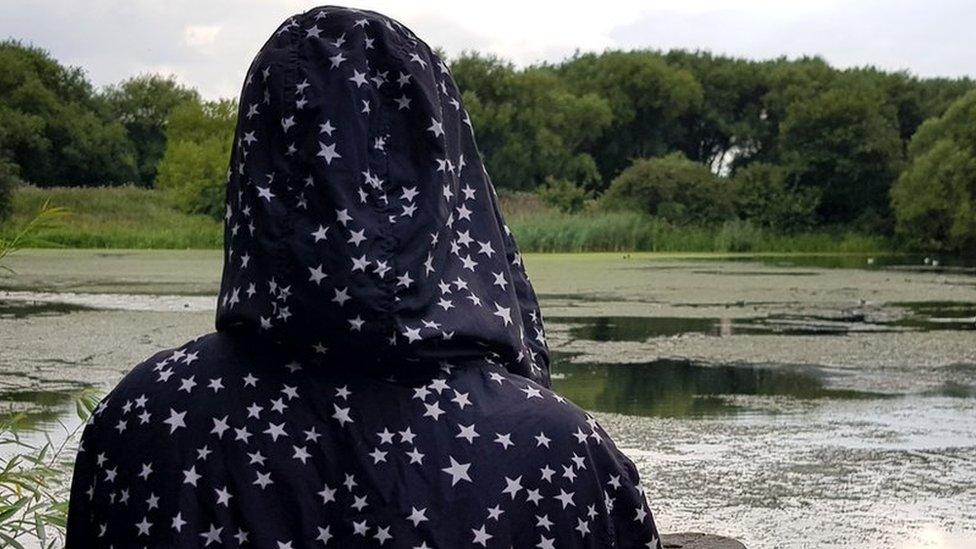Exempt housing: 'Living on the street is often better than this'
- Published
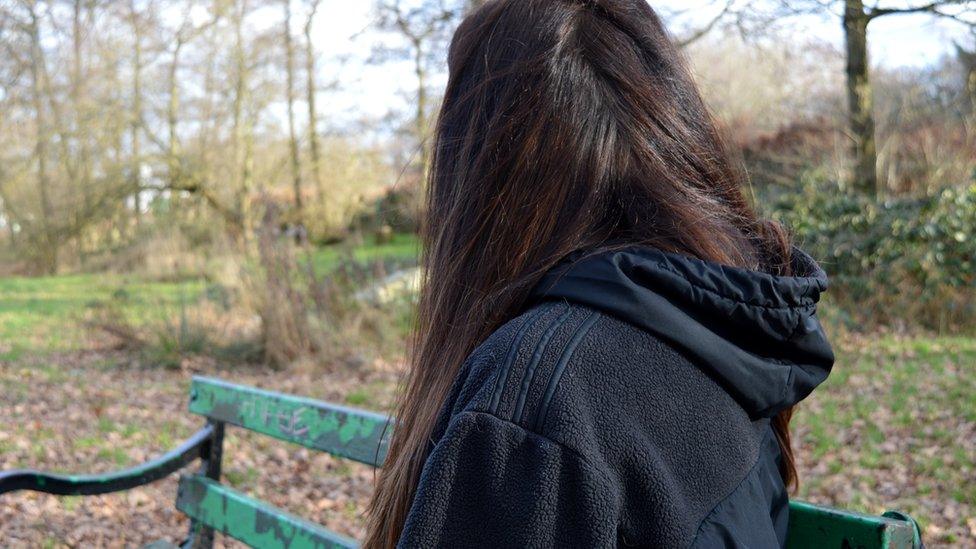
Philipa worked for several supported accommodation providers for almost two years in Birmingham and witnessed drug dealing and vulnerable tenants in fear
Exempt accommodation - a type of shared housing - is under the national spotlight over claims that it fails to look after, and in some cases exploits, some of the country's most vulnerable people.
Two former support workers have told the BBC crime and drug-ridden homes were rife across the sector, with many residents living in dangerous and hopeless situations.
"People are left in more dire situations than when they first went in there," said Philippa, whose experiences sometimes left her in fear for her own safety - and that of people she was trying to help.
She came across an advert for a job working with people living in exempt supported accommodation in Birmingham just over two years ago after being made redundant.
It would involve her travelling to properties scattered around the city every day, helping people with few housing options - including men and women with substance abuse problems, prison leavers, serious mental health issues and rough sleepers.
Her training was simply to shadow another colleague for four hours on her first day, before being given a full client list on her second. Within days of starting, the complexities of the lives of the residents, and the places in which they were living, became clear.
"It's supposed to be a safety net and help them start a new life - to teach people how to live, how to budget and keep a clean home," said Philippa, not her real name.
Instead, she said she saw some of the country's most vulnerable people living in rooms with barely any furniture, with the lure of a life of drugs and crime constant due to criminals living beside them.

Two former support workers who spoke to the BBC said they tried to raise concerns with housing management but it "fell on deaf ears"
One evening, Philippa said she was contacted by the housemate of a woman who had recently fled domestic violence and was "acting strange".
When she arrived at the property, Philippa said she found her "lifeless and unconscious" in her room after overdosing on heroin.
She claims it later transpired she had taken drugs supplied to her by a dealer living in the next room.
"I'm supposed to be referring these vulnerable adults for drug misuse but how can I help them when there's a dealer in the house?" she said.
She said she had witnessed bedrooms used for weighing and distributing heroin and cocaine, with residents recruited to work for the dealers living in the same building.
"Living in exempt accommodation is jumping from the frying pan into the fire," said Philippa.
"Some leave and go back to living on the street because it's a better option, believe it or not. That is the bottom line."
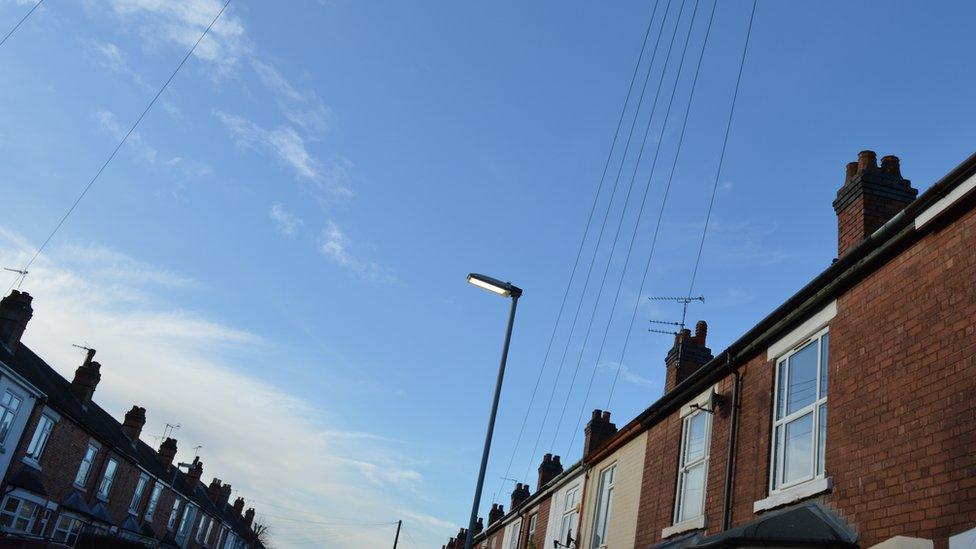
Many are calling for tighter regulations in the exempt sector over fears for people's safety
This accommodation should be providing, in legal terms, "more than minimal support" to some of the most vulnerable across England, but "can fall woefully short of the support that's needed", says the Levelling Up, Housing and Communities Committee chair Clive Betts who launched a public inquiry in December to look into it.
People are often housed in terraces, flats above shops or what looks like a house share - a home of multiple occupancy (HMO). Exempt housing means it is free from local licensing regulations and housing benefit caps, which in turn means the council and police have few powers to act over the quality and safety.
Done well, it can be life-changing. Birmingham charity St Basil's supported about 4,000 young people aged between 16 and 25 across the West Midlands in the past year (April 2020-21), with 92% moving on "in a positive planned way", such as getting their own home or on to education and training.
But the difference in outcomes for residents seems to be often concerned with non-commissioned and commissioned accommodation - the latter having undergone rigorous testing before it can provide services and access council funding.
Of the 22,000 supported housing rooms that have become available in Birmingham over the past three years, only 9% - 2,000 - has been commissioned by the council.
Philippa ended up working for several not-for-profit organisations as a support worker for almost two years, before quitting when it became too much.
She said she was speaking out to shed light on "this underground world that the public don't really know about".
The BBC is not naming the firms to protect her identity, but we have seen documentation showing they provided accommodation on behalf of some of the city's biggest lease-based exempt housing providers.
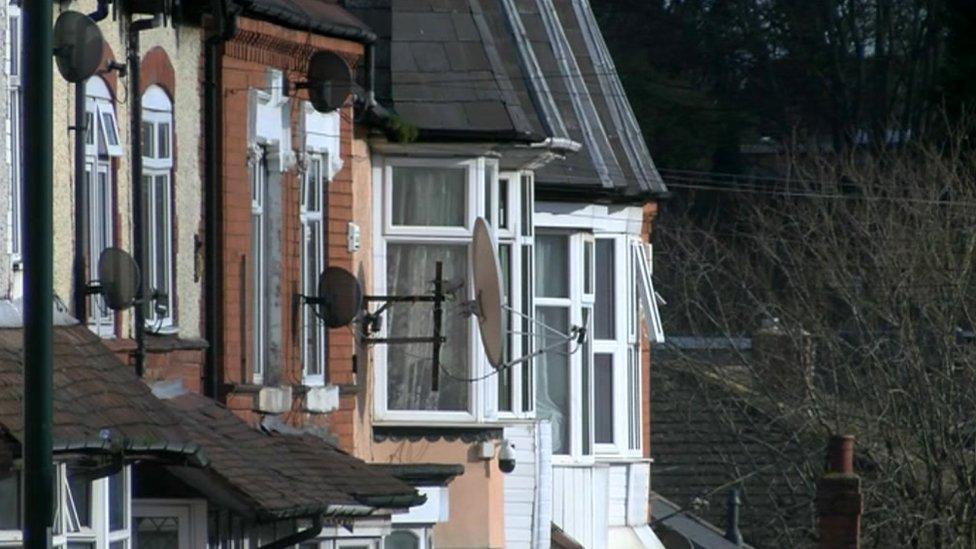
Living in exempt accommodation "is like jumping from the frying pan in to the fire" said one former support worker in Birmingham
More than £220 per week per tenant is claimed for providing accommodation via the Department for Work and Pensions, which is paid directly to the businesses.
The fees are more than double compared with a council tenancy in Birmingham - an average of £90.62 per week., external
Philippa said some of the firms she had worked for had offered a £100 cash incentive for every new client she had brought in.
"It's big business," she said, with the majority of properties housing between three and six people - but sometimes more.
Philippa claimed weak and sometimes negligent management at more than one provider would encourage the doctoring of individuals' notes to make it appear they'd been supported and given referrals to charities and services when they hadn't.
She said she had been handed a backlog of residents' files - dating back months before she'd even started - and had been asked "to forge support notes, risk assessments and support plans" for people she'd never met.
She said she saw evidence that suggested fraudulent housing benefit claims could be being made at one company.
"One property, nobody was living in the property - but it was down as a full house. Not even a hairbrush in sight," she said.
These are not outlandish claims. Since 2019 Birmingham City Council has recovered £3.6m from landlords, external who have made "inappropriate or fraudulent housing benefit applications".
It includes former exempt provider Prospect Housing which repaid £1.2m in over-claimed housing benefit in 2020 before closing down permanently.
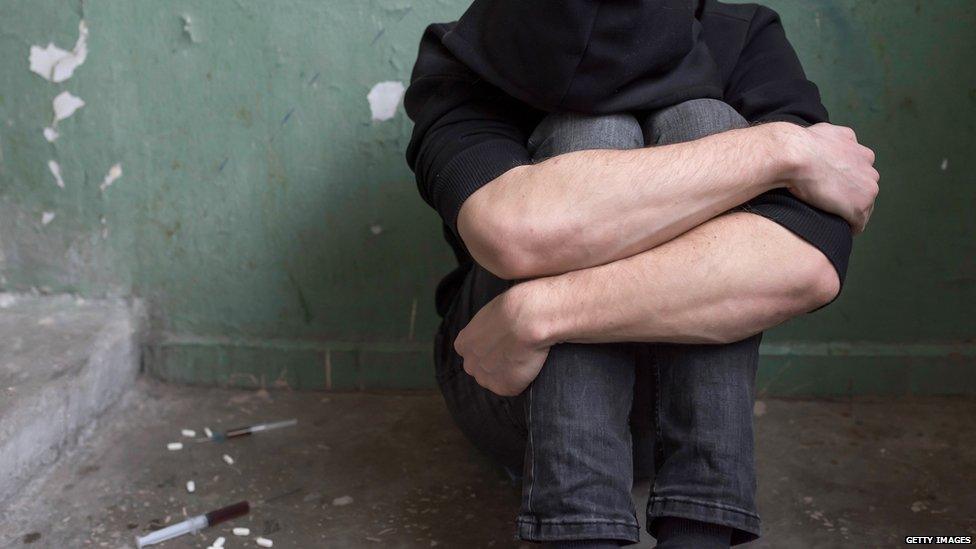
One former support worker said this type of accommodation was "turning people who haven't had drug habits - into people with them"
Philippa said some rooms were in an appalling state, without carpet, curtains and central heating.
"Sometimes it was just a mattress on a floor," she said.
She was expected to provide at least one hour of support to each resident every week, but had a caseload of between 15 and 25 people on some days.
"It was totally overwhelming," she said.
Another support worker, Debbie, echoed Philippa's concerns. She worked for two other organisations, also in Birmingham, but after a few months in the job ended up leaving under the strain.
"[Exempt housing] is turning people who haven't had drug habits, into people with them," she said.
"Some of these people are so ready to move on - but they just fall back into drugs because all day, every day, there's nothing for them to do. There's drugs being sold and they have no willpower."
She too claimed she was asked to make up reports on individuals "for the past three months" that predated her even working with the firm.
Debbie also said she saw no DBS or basic identity checks carried out on staff, including herself, and said the vetting of residents was "non-existent".
"You can't put someone who has lost their family home with people putting needles in their arms in the living room," she said.

'There are far too many that need shutting down'
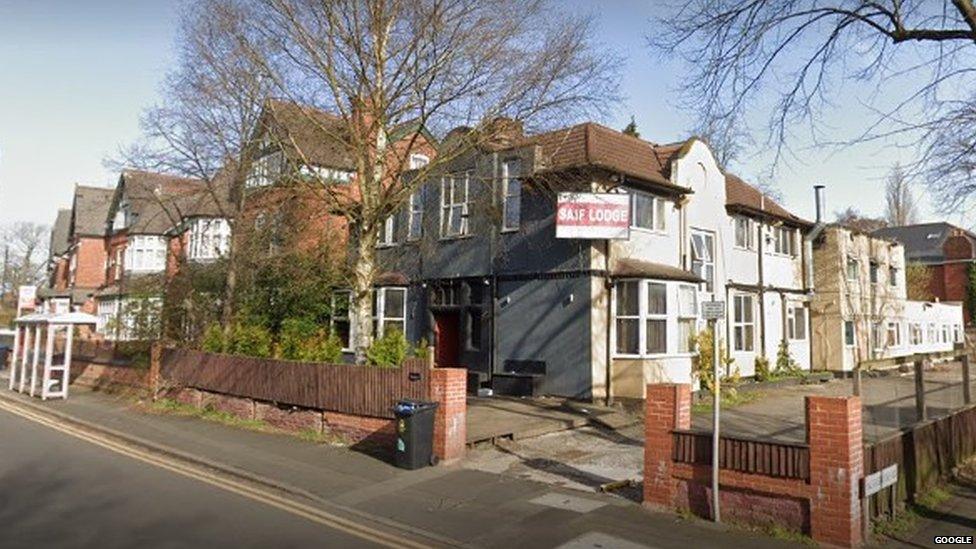
Saif Lodge opened in 2012 offering supported accommodation to homeless and vulnerable people but was closed down nine years later
Saif Lodge, in Edgbaston, Birmingham, became the first exempt property in England to be shut down after a report found "many incidents of prostitution, drug dealing, aggression and other anti-social behaviour".
It housed more than 20 people at a time and brought chaos to a once-quiet neighbourhood.
Police and other authorities spent months gathering evidence during 2021 to get it closed down for good following a Planning Inspectorate report which led to a closure order being granted.
But Edgbaston MP Preet Kaur Gill, who spoke about Saif Lodge in Parliament, said it was unsustainable for all properties with similar issues to be shut "because there are far too many" examples.
In April 2021, action was taken by Birmingham City Council to close down another exempt property, in Oak Tree Lane, Selly Oak, after numerous complaints of anti-social behaviour and a death, reported Birmingham Live., external
The council said despite closing down 134 Oak Tree Lane and a number of other supported exempt properties, it was only due to providers co-operating it was able to do this.
A spokesman added: "As a result of having no enforcement powers, we can't prevent another provider moving in and taking over the property."

In the end, Philippa said her anxiety over what she was dealing with became so bad she had to leave.
She made four reports to West Midlands Police over concerns about drug dealing, prostitution and grooming of young girls as well as a violent resident.
The force confirmed it was investigating and it was aware how exploitative exempt housing could be.
Assistant Chief Constable Rich Baker said: "We do have concerns there are considerable opportunities for criminals to generate and launder money through exempt properties, whilst also exploiting taxpayers' money."
He said officers worked with the National Crime Agency and the West Midlands Regional Organised Crime Unit to identify and disrupt gang activity.
"If there is evidence of crime linked to exempt properties we will take action and always look for opportunities through the Proceeds of Crime Act to recover money or assets accrued through crime," he said.
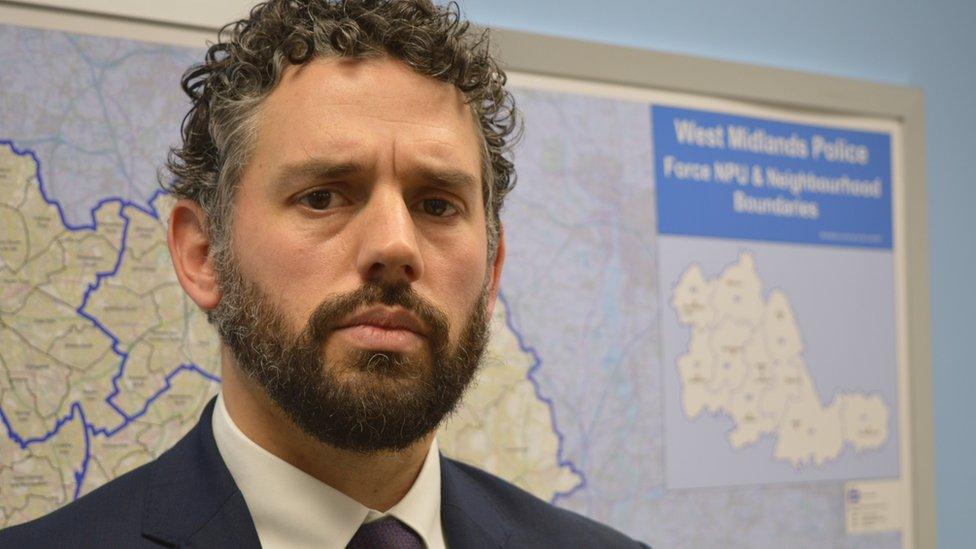
Serious organised gangs are running some exempt accommodation organisations in Birmingham, says the assistant police and crime commissioner Tom McNeil
West Midlands Police assistant police and crime commissioner Tom McNeil was shown Philippa's testimony as part of this investigation.
"This is obviously appalling and extremely serious," he said, adding intelligence showed some exempt housing was being run by organised crime gangs and negligent landlords who were exploiting the system to profit from the vulnerable.
"The police have recognised that one of the drivers of the crime caused by exempt accommodation is that serious organised gangs are actually running these centres," said Mr McNeil.
The police and crime commissioner's office is calling for "strong regulatory change" after seeing a "huge spike in very recent numbers of this kind of exempt accommodation".
He added: "We want to see a very high standard for those that are allowed to run it full stop, which means a regulatory regime that doesn't just let anybody do it.
"But is also really clear about the kinds of standards expected, that includes around support for mental ill health, drug addiction and the like."
The public inquiry into exempt housing will look at how it "should best be provided and regulated" and a report is due to be published in the coming months.
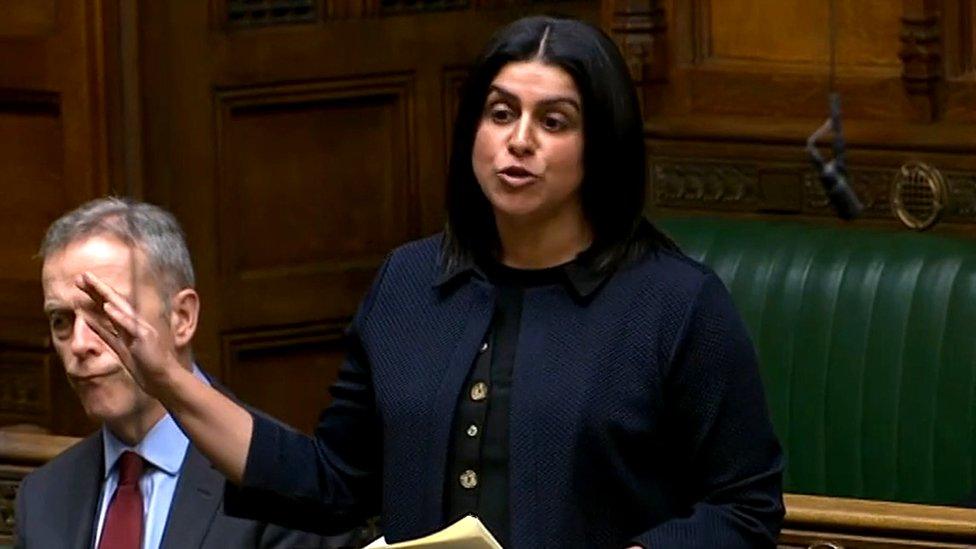
MP Shabana Mahmood said many constituents had been affected by "this very real problem", including those living near to exempt properties
In February the MP for Ladywood, Shabana Mahmood, spoke in a parliamentary debate on the issue calling for tougher regulation to stop "lucrative loopholes" being exploited by "rogue cowboy providers".
Eddie Hughes, minister for rough sleeping and housing, acknowledged it was "a serious matter impacting hundreds, if not thousands of individuals across this country".
He added he was still awaiting a final report into the findings of pilots which were carried out across Blackburn, Hull, Bristol, Birmingham and Blackpool in 2021 before any decisions were made.
He said he would not rule out the use of legislation changes in the future "if that proves to be the most important tool we could deploy".
A joint investigation by Prospect Housing and homelessness charity Crisis found 153,701 households across the UK were in supported housing as of May 2021 - an increase of 62% over five years and a growing national issue.
If you have been affected by the issues raised, support is available via BBC Action Line.

Follow BBC West Midlands on Facebook, external, Twitter, external and Instagram, external. Send your story ideas to: newsonline.westmidlands@bbc.co.uk, external
Related topics
- Published7 December 2021
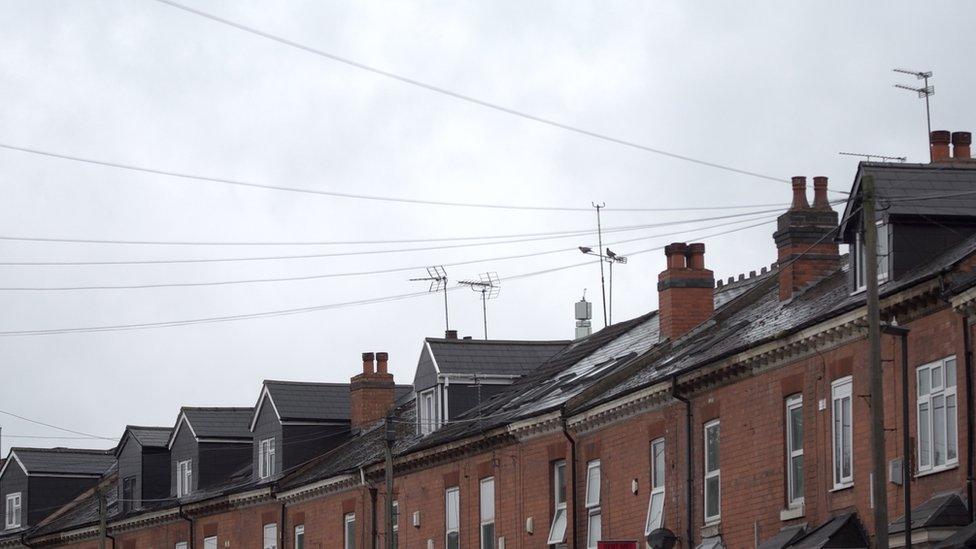
- Published21 October 2021
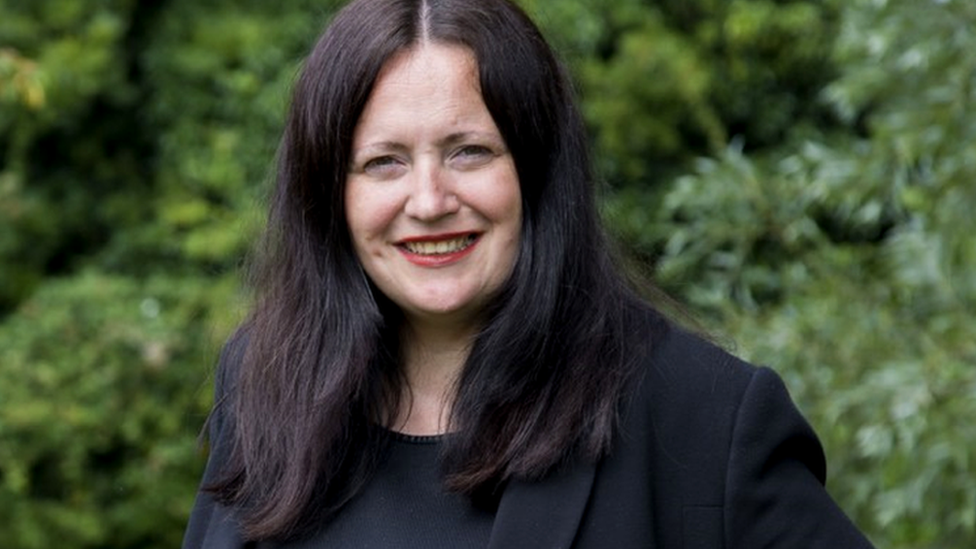
- Published16 August 2021
